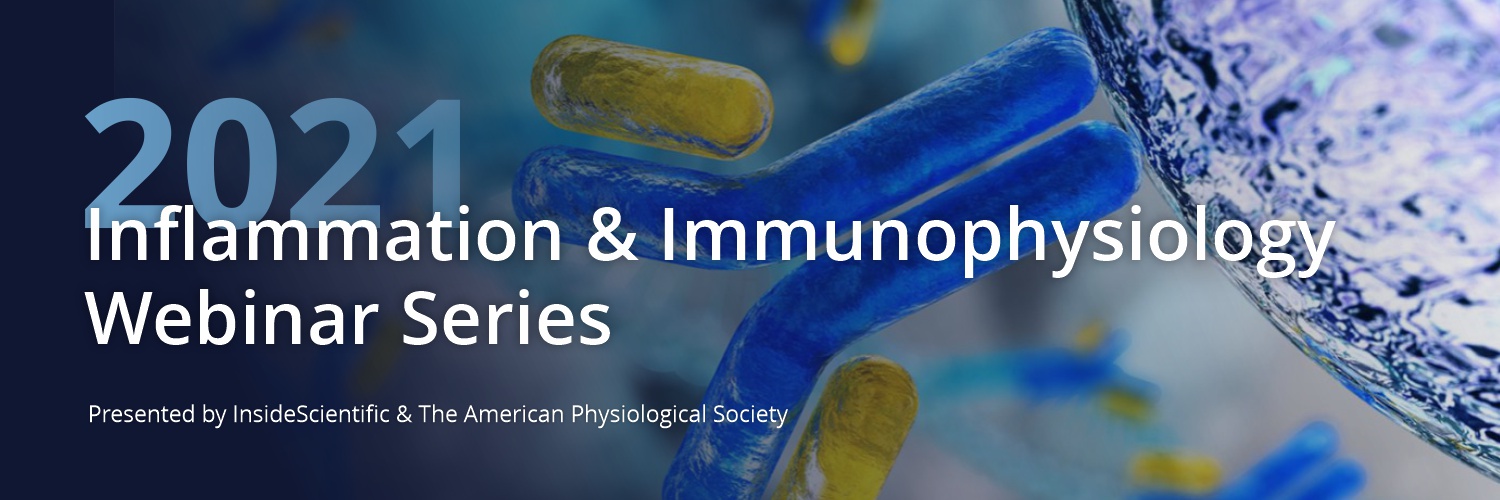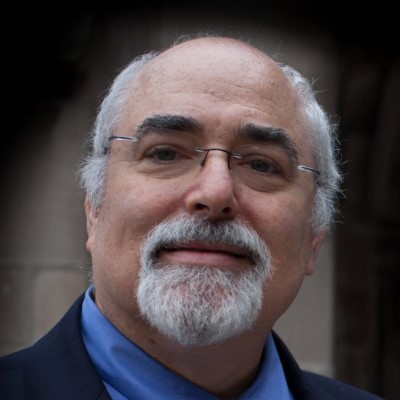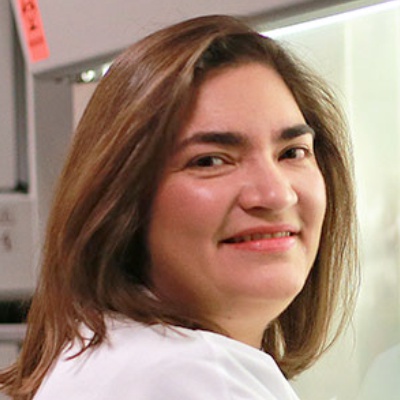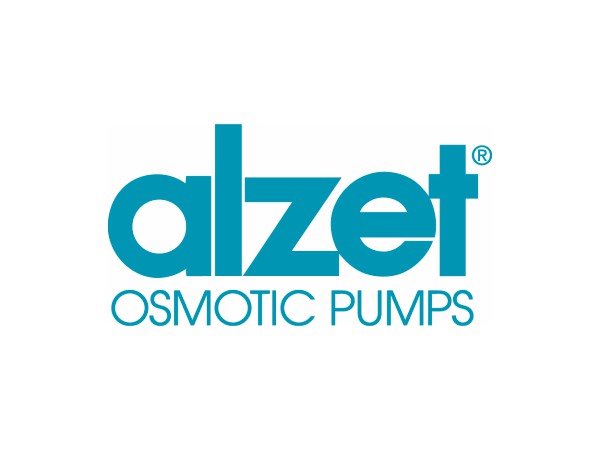
Inflammation & Immunophysiology: An Exploration of Pathophysiology
The American Physiological Society (APS), the Autoimmune Association, and InsideScientific are pleased to announce a joint webinar series covering fundamental principles, late-breaking research and novel discoveries in the field of inflammation and immunophysiology.
This program includes a number of live lectures, including top science from leading researchers around the world, covering topics central to immunology and inflammation research and related models of disease.
Myeloid Cells and Cardiovascular Health
THU, MAY 13, 2021
Monocytes and macrophages are innate immune cells that reside and accumulate in atherosclerotic lesions but also in the healthy and injured heart and brain. The cells and their subsets pursue distinct functions in steady state and disease, and their tenure may range between hours to months. Some subsets are highly inflammatory, while others support tissue repair.
In this webinar, Dr. Matthias Nahrendorf will discuss current concepts of cell supply by the hematopoietic system, lineage relationships and systems’ cross talk, highlights open questions, and describes imaging tools for studying monocytes, macrophages and their progenitors.
Matthias Nahrendorf, MD, PhD
Director, Mouse Imaging & Professor
Center of Systems Biology
Harvard Medical School
Conversations Between Mucosal Immunity and the Gut Barrier
THU, MAY 27, 2021
Mucosal surfaces are lined by epithelial cells. In the intestine, the epithelium separates, and therefore regulates interactions between the immune system and luminal materials, including dietary antigens and microbes. In the absence of specific transporters, epithelial cell membranes are nearly impermeant to hydrophilic materials. However, the ultimate success of the barrier depends on the ability of epithelial cells to prevent unrestricted paracellular flux across the shunt pathway. Intercellular tight junctions form selectively-permeable seals that mediate paracellular flux.
The biophysical characteristics of these tight junction seals are modulated during development and by physiological stimuli, immune cell signaling, and enteric pathogens. In turn, tight junction selective permeability modifies nutrient transport, mucosal immune tone, and pathogen clearance. Recent advances have shed new light on the mechanisms of tight junction regulation and the impact of barrier modulation on mucosal homeostasis and health, pathogenic progression, and resolution of disease.
Jerrold R. Turner, MD, PhD
Professor of Pathology, Harvard Medical School
Professor of Medicine, Brigham and Women’s Hospital
Engineered T Cells for Cancer
THU, JUN 17, 2021
Genetically-modified T cell immunotherapy has achieved unprecedented responses in hematologic B cell malignancies, and there are now six different form of engineered T cells that have been modified with chimeric antigen receptors (CARs) that are FDA-approved for cancer.
In this webinar, Dr. Marcela Maus discusses the components and technologies used in making a T cell product, some of the factors considered to be important for efficacy, and the underlying mechanisms of toxicity and resistance. She also discusses the outlooks and recent data in development of CAR T cells and other forms of engineered T cells for solid tumors.
Marcela V. Maus, MD, PhD
Associate Professor of Medicine, Harvard Medical School
Director of Cellular Immunotherapy, Mass General Cancer Center
Sponsored by:
Cardiovascular Diseases Associated with HIV and SARS-CoV-2 Infections
THU, SEP 9, 2021
Despite ongoing research around the world to better understand the pathogenesis of SARS-CoV-2, the ways in which it exacerbates cardiovascular disease (CVD) are not fully understood. While it is well accepted that SARS-CoV-2 infects lung epithelial cells, whether it can also infect endothelial cells is less clear.
In this webinar, Dr. Xuebin Qin will discuss his lab’s development and characterization of new rodent models of COVID-19, and how they use these models to study endothelial dysfunction and injury resulting from immune activation. Dr. Qin will also discuss why HIV infection is associated with increased risk of CVD. He will provide an overview of the cellular and molecular mechanisms underlying HIV-1-associated CVD, and the mouse and NHP models he has worked with to elucidate them.
Premature Vascular Disease in Autoimmunity
THU, OCT 7, 2021
Patients with systemic autoimmune diseases such as lupus and rheumatoid arthritis have a striking increase in risk to develop vascular complications such as myocardial infarction and stroke. Immune dysregulation characteristic of these diseases appears to play a prominent role in this enhanced risk.
In this presentation, Dr. Mariana Kaplan will highlight the role of the immune system in the development of vasculopathy and premature atherosclerosis in systemic autoimmunity and discuss potential strategies to prevent these devastating complications.
Mariana J Kaplan, MD
Deputy Scientific Director, NIAMS
Senior Investigator and Branch Chief, Systemic Autoimmunity Branch
Acting Director, Lupus Clinical Trials Unit
Immunophysiological Mechanisms that Limit Dissemination of Microbial Signals from the Intestine
THU, NOV 11, 2021
The intestine communicates with neighboring organs and tissues, including secondary lymphoid tissues, by delivering cells and molecules through the lymphatic or venous vasculature. The architecture of these communications is introduced and the lecture proceeds to reveal strategies that the intestine uses to limit the dissemination of microbial signals from gut, and the potential proinflammatory effects of this dissemination. Illustrations are given involving the lymphatic vasculature, and separately, the venous vasculature.
Gwendalyn J Randolph, PhD
Professor of Pathology and Immunology,
Washington University School of Medicine, St Louis






